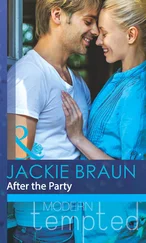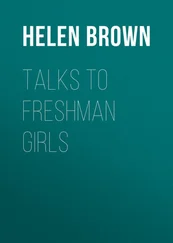‘To learn more about meditation.’
‘There’s no shortage of meditation classes in this part of the world,’ I countered.
‘I’m going to help in an orphanage as well,’ she added, as if it might soften my attitude.
Admittedly it did, though only a little. Close to 30,000 Sri Lankans had lost their lives in the tsunami of December 2004. Families had been decimated. With its history of war and natural disaster, Sri Lanka had to be one of the most grief-stricken places on the planet. However, I was in no mood to sacrifice our daughter to its misery.
‘The monastery’s really remote, in the mountains in the South,’ she said, opening the fridge and slipping an organic blueberry into her mouth. ‘The war’s miles away up in the North.’
There’d been a serious gap in our daughter’s education. Surely she understood war was something people ran away from , not toward. She’d been sheltered all her life, coated in SP30 sun cream every summer and given the best education we could afford. Unlike our generation, she’d never met uncles who’d been maimed at El Alamein. Sepia photos of young men slaughtered at Gallipoli meant even less. She’d grown up in a world where supermarkets were always brimming with food. Lydia had no idea what she’d been protected from.
‘Have you seen a map of Sri Lanka?’ I asked, barely able to conceal my alarm. ‘It’s a dot in the ocean. The North and South are as close together as Melbourne and . . . Warrnambool.’
Warrnambool is a coastal town about three and a half hours’ drive away from Melbourne. We’d taken a French exchange student there to see some whales. It’d rained and our guest hadn’t been impressed.
In the face of Lydia’s silence I asked her exactly how long she intended to be away.
She was vague. Months, possibly. Months?!
‘And what does Ned think about it?’ I asked.
‘He’ll be fine without me,’ she said, studying a crack in the floorboards.
‘What about your study course? And your scholarship?’
The second hand on the kitchen clock froze. A spider sidled across the ceiling.
‘They can wait,’ she said quietly.
‘ Wait?! ’ my voice rose to a quavering crescendo. ‘You mean you’re going to throw away your scholarship?! ’
Her eyes were damp and swollen. I couldn’t remember the last time I’d raised my voice at her – possibly never – but a few tears weren’t going to make me back down.
‘You don’t understand . . .’ she muttered.
Three little words every mother loves to hear.
‘This is something I need to do.’
When did young people start needing to do things? Most previous generations counted themselves lucky if they lived long enough to raise a family.
‘Why put your life at risk?’
‘Plenty of my friends are doing volunteer work overseas,’ she said with infuriating serenity, as if I was the one being difficult.
‘But there’s a war going on in Sri Lanka!’ I snapped. ‘They have bombs going off and terrorist attacks. Foreigners are being targeted. Can’t you wait till the fighting’s over? Or at least go to a country where people aren’t killing each other?’
She looked at me as if I was an inmate of a mental institution in need of medication.
‘You can’t go,’ I added. ‘I forbid it.’
Forbid? The word resonated back through decades to a similar situation, except it had occurred in another kitchen with wallpaper featuring hundreds of wicker baskets, and miniature prints of Hogarth’s London on either side of the fireplace. Mother and daughter were locked in battle, though back then I was playing the role of impossible youngster and Mum was doing the yelling. ‘You’re not even eighteen. You’re just a child!’ I remembered the anger on her breath and how I’d thought that in her teeth-gnashing, eye-rolling anguish she looked like one of Picasso’s women. Her rage worked like a pitchfork, jabbing me into a corner. ‘I forbid you to get married!’
Dad was noticeably absent while this was going on. He was probably at work, or playing chess with his friend across town. Men are masters at keeping a low profile on these occasions. Mum’s forbidding had made me all the more determined. Still, I hadn’t been heading off to a war zone.
‘The tickets are booked and paid for,’ said Lydia coldly.
Booked and paid for? I’d said exactly the same to Mum all those years ago just before my eighteenth birthday. My tickets to Britain are booked and paid for. I’m flying across the world to marry the man I love. Defy me at your peril, old woman.
Lydia’s eyes had darkened to hazel blended with olive green. Maybe it was a trick of the light. For the first time I noticed her eyes were exactly the same colour as Mum’s.
‘I’m leaving in three weeks. Good night,’ she added before fleeing upstairs.
Alone in the kitchen in anaesthetised silence, I swallowed an urge to rip plates out of the cupboard and smash them against the walls. Much as I wanted to chase Lydia upstairs, grab her by the shoulders and shake sense into her, I held back.
Lydia was determined to have her way. She’d made up her so-called mind. I knew the pattern from conflicts we’d had in the past, even over little things like choosing clothes. If I gushed enthusiasm for the pretty floral skirt, she’d inevitably want the plain linen one. The more I spurred her on, the more deeply she’d dig in her hooves.
A friend had drawn up her horoscope soon after her birth. He’d laughed and said he’d never seen anything like it. Lydia was a Taurus born in the year of the Ox and in the hour of the Ox. A triple whammy of bullishness. He said we were destined to lock horns.
I hurried to the computer and looked up Travel Warnings. It was not reassuring bedtime reading: ‘You are advised to reconsider your need to travel to Sri Lanka at this time because of ongoing civil unrest, the volatile security situation and the very high risk of terrorist attacks. Attacks could occur at any time, anywhere in Sri Lanka, including the South.’
I printed it out twice and forwarded it to Lydia by email in case she tossed the printed version in her bin.
Two hours later, Philip and I lay side by side staring at shadows on the bedroom ceiling.
‘Where do you think she got the airfare from?’ he asked.
‘Her father, probably. Hang on. Remember that money we gave her for her twenty-first?’
‘You mean the study trip to China that never eventuated.’
‘She’s not going to Sri Lanka. I’m forbidding it.’
‘Impossible,’ said Philip, the frustrating voice of reason. ‘She’s over eighteen.’
‘I’ll hide her passport.’
‘That’s not going to get us anywhere,’ he sighed.
‘She’ll get herself killed !’ I said, tugging the sheet into my neck and turning over to face the wall. It was all very well for Philip, I fumed. He hadn’t carried her in his womb for nine months and nursed her with milk from his own body. He wasn’t even her biological father. That was an unworthy thought, however. Even though he was Lydia’s stepfather, there’d never been any dividing lines in his affection. His was as devoted to her as he was to his biological daughter.
Still, I thought, anger rising again, why couldn’t he put his foot down and stop her?
Silent accusations hung in the darkness.
I blamed myself. If Lydia’s father and I hadn’t split up, she wouldn’t be so reckless and defiant. On the other hand, if we’d stayed together one of us would probably be dead by now and the other in prison.
I blamed Lydia. The cheek of it; sneaking off to buy airline tickets.
Читать дальше












